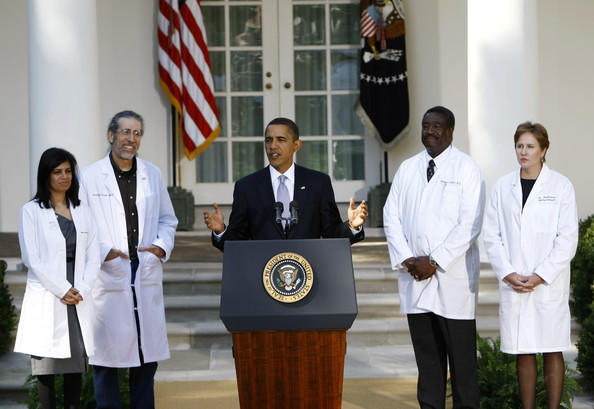
A majority of American employers consider the Affordable Care Act (Obamacare) “a step in the wrong direction,” according to a new report released yesterday by the Deloitte Center for Health Solutions.
The report, titled “2012 Deloitte Survey of U.S. Employers: Opinions About the Healthcare System and Plans for Employee Health Benefits,” was based on a survey of 560 randomly selected companies that employ over 50 people who currently offer health insurance to their employees. It was conducted between February and April of this year.
The report had two stated objectives:
• To explore employers’ opinions about the Affordable Care Act
• To understand employers’ predisposition toward making changes to their health benefits strategies, including the potential that health exchanges might play a role in their strategy
The report’s six key findings related to the first objective–understanding employer opinions about the Affordable Care Act–were:
1. The majority of employers who responded view the Affordable Care Act as a “step in the wrong direction.” 59% considered the Affordable Care Act a “step in the wrong direction,” while 30% approved of it.
2. Few employers (9%) anticipate dropping health care insurance coverage over the next 1 to 3 years, but small employers with 50 to 100 employees (13%) are six times more likely to do so than large employers with 1,000 or more employees (2%).
3. Smaller employers report being less prepared to implement provisions of the Affordable Care Act. 26% of small employers consider themselves unprepared, while only 5% of employers with 1,000 to 2,500 employees consider themselves unprepared. Among employers with more than 2,500 employees, the number that consider themselves unprepared rises to 10%.
4. 87% of all employers consider health benefits necessary to attract and retain talent.
5. Employers surveyed believe that they have a “good” understanding of the Affordable Care Act, with Human Resource professionals more confident than CEOs and CFOs. 48% rate their understanding as good or excellent.
6. Most employers believe that the U.S. health care system underperforms. 64% of employers rate at is fair, poor, or failing.
The most surprising finding in the report related to its second objective–to understand employers’ predisposition toward making changes to their health benefits strategies, including the potential that health exchanges might play a role in their strategy.
Here is the key finding as it relates to business attitudes and health care exchanges:
Employers believe privately run/public-private partnerships offer the highest potential value to their coverage strategies; an exchange that offers a wide range of plan options is preferred, most especially among smaller employers. (emphasis added)
When asked how likely their company would be to use the exchanges if the following statements were true, employers in the survey responded as follows:
17% said they were likely to participate if the exchange is government-run (either federal or state).
41% said they were likely to participte if the exchange is operated as a public-private partnership.
49% said they were likely to participate if the exchange is operated as a private non-profit entity.
41% said they were likely to participate if the exchange actively screens and restricts the number of plans that may participate in the exchange according to price and quality.
45% said they were likely to participate if the exchange allows any plan that meets the exchange’s minimum standards to participate in the exchange.
66% said they were likely to participate if the exchange offered a large choice of plans available at their company’s targeted benefit level (bronze, silver, gold, or platinum).
While the Affordable Care Act allows and encourages states to establish their own state health exchanges, most conservative thinkers have opposed the notion. Indeed, two Republican governors in Texas and Florida have publicly declared their states will not establish health exchanges, and several other states are expected to follow their lead.
The report confirms that most business leaders agree with opponents of state health exchanges. Government run health exchanges, whether operated by the federal government or state governments, are not very popular among business executives. While “privately run/public-private partnerships” are more favored, it’s unclear if any successful privately run/public-private partnerships can be effectively established over the next few years.
Primary authors of the report included Paul H. Keckley and Sheryl Coughlin from the Deloitte Center for Health Solutions. Jon Gabel, Heidi Whitmore, and Jeremy Pickreign, all Senior Fellows at the NORC at the University of Chicago, a public opinion research organization, contributed to the report.
Michael Patrick Leahy is a Breitbart News contributor, Editor of Broadside Books’ Voices of the Tea Party e-book series, and author of Covenant of Liberty: The Ideological Origins of the Tea Party Movement.

COMMENTS
Please let us know if you're having issues with commenting.